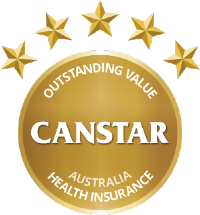Health Insurance Comparison
Canstar’s health insurance comparison tool lets you compare the features, fees and premium estimates of policies from a wide range of providers. The table below is sorted by highest Star Rating for policies from our Online Partners.

 Psychiatric services
Psychiatric services
 Rehabilitation
Rehabilitation
 General dental
General dental
 Physiotherapy
Physiotherapy
 Psychiatric services
Psychiatric services
 Rehabilitation
Rehabilitation
 General dental
General dental
 Physiotherapy
Physiotherapy
 Psychiatric services
Psychiatric services
 Rehabilitation
Rehabilitation
 General dental
General dental
 Physiotherapy
Physiotherapy
 Psychiatric services
Psychiatric services
 Rehabilitation
Rehabilitation
 General dental
General dental
 Physiotherapy
Physiotherapy
 Psychiatric services
Psychiatric services
 Rehabilitation
Rehabilitation
 General dental
General dental
 Physiotherapy
Physiotherapy
 Psychiatric services
Psychiatric services
 Rehabilitation
Rehabilitation
 General dental
General dental
 Physiotherapy
Physiotherapy
 Psychiatric services
Psychiatric services
 Rehabilitation
Rehabilitation
 General dental
General dental
 Physiotherapy
Physiotherapy
 Psychiatric services
Psychiatric services
 Rehabilitation
Rehabilitation
 General dental
General dental
 Physiotherapy
Physiotherapy
 Psychiatric services
Psychiatric services
 Rehabilitation
Rehabilitation
 General dental
General dental
 Physiotherapy
Physiotherapy
 Psychiatric services
Psychiatric services
 Rehabilitation
Rehabilitation
 General dental
General dental
 Physiotherapy
Physiotherapy
 Psychiatric services
Psychiatric services
 Rehabilitation
Rehabilitation
 General dental
General dental
 Physiotherapy
Physiotherapy
 Psychiatric services
Psychiatric services
 Rehabilitation
Rehabilitation
 General dental
General dental
 Physiotherapy
Physiotherapy
 Psychiatric services
Psychiatric services
 Rehabilitation
Rehabilitation
 General dental
General dental
 Physiotherapy
Physiotherapy
 Psychiatric services
Psychiatric services
 Rehabilitation
Rehabilitation
 General dental
General dental
 Physiotherapy
Physiotherapy
 Psychiatric services
Psychiatric services
 Rehabilitation
Rehabilitation
 General dental
General dental
 Physiotherapy
Physiotherapy
 Psychiatric services
Psychiatric services
 Rehabilitation
Rehabilitation
 General dental
General dental
 Physiotherapy
Physiotherapy
 Psychiatric services
Psychiatric services
 Rehabilitation
Rehabilitation
 General dental
General dental
 Physiotherapy
Physiotherapy
Showing 10 of 742 results
Unsure of a term in the above table? View glossary
The initial results in the table above are sorted by Star Rating (High-Low) , then Monthly premium (approx) (Low-High) , then Provider Name (Alphabetical) . Additional filters may have been applied, which impact the results displayed in the table - filters can be applied or removed at any time.
Why compare health insurance with Canstar?
No cost to you
Using our comparison tool to find a better deal is free. We may receive a commission from our online partners if you apply for a health insurance policy you find on our site.
Expert research
Our team of health insurance research experts crunch the numbers to rate health insurance based on value (price as well as features) to help you compare. Read the health insurance methodology.
A wide range of insurers
We rate and review health insurance policies from more than 25 brands which means you can compare and choose products from both large and challenger brands, established and new.
Easy to compare & apply
Our health insurance comparison tool allows you to filter your search results so it’s easy to find the right product for you. What’s more, you can click straight through to many of our online insurers, making it easy to apply instantly.
Better deals are found when you compare
Canstar helps millions of Australians each year compare and find better deals
Health insurance guides and resources
Browse our articles and guides to learn more about private health insurance in Australia, how it works and how to make the most of your policy.
Health insurance for tax purposes
Cost of health insurance
Other health insurance information
Sally Tindall’s guide to comparing health insurance
Health insurance tips from our expert
Don’t set and forget
Health insurance isn’t a ‘set and forget’ expense. Your needs change, and so do policies. Take half an hour at least once a year to review your cover. Are you still paying for pregnancy and birth-related services when your kids are in high school? Or have you picked up a new sport that might put you at higher risk of injury? A quick review can help you cut out what you don’t need and ensure you’re covered where it matters.
Consider a higher excess
A higher excess means you’ll pay more out of pocket if you need treatment, but it can significantly reduce your premiums. If you’re fit, healthy, and not making frequent claims, this could be a way to trim down your monthly bill. Just make sure you have enough savings to cover the excess if you ever need to use your policy.
Loyalty won’t always save you money
Health insurers love long-term customers, but that doesn’t mean they’ll reward you for sticking around. If you’ve been with the same provider for years, chances are you’re paying more than you need to. Before your policy renews, shop around, compare policies, and see if switching could save you money. And don’t be afraid to call your insurer and ask for a better deal – you might be surprised at what they offer to keep you.
A quick calculation on how much you could save, even after paying switch fees, is likely to be enough to spur you into action.
Sally Tindall, Canstar Director of Data Insights
One of Australia’s leading financial and political commentators, Sally Tindall serves as Canstar’s official spokesperson. An advocate for national financial literacy, Sally regularly provides industry commentary and consumer insights within the banking, insurance, energy, and broader financial services industries, empowering Australians to make financially sound choices.
Sally’s advice to customers when choosing a health provider has always been to “read the fine print and not be fooled by incentives and finite offers”, encouraging a holistic approach to selecting a provider—not just choosing the cheapest option and volume of incentives.
Her expert insights are frequently sought by leading Australian media outlets including The Australian, News.com.au, Herald Sun, Sydney Morning Herald, The Australian Financial Review, Herald Sun, ABC, Domain.com.au, realestate.com.au, 9news, and Yahoo! Finance.
Sally’s extensive career includes working across all levels of Australian government, notably for the Hon. Julia Gillard, where she contributed to Federal Budgets focused on easing living costs and led communications at multinational finance forums like the G20 and APEC. Follow Sally on LinkedIn.
Latest in health insurance
What is private health insurance?
 Private health insurance is a type of insurance policy that provides cover for a variety of healthcare options and medical expenses, including costs that Medicare may not cover.
Private health insurance is a type of insurance policy that provides cover for a variety of healthcare options and medical expenses, including costs that Medicare may not cover.
Australians wanting to buy private health insurance can choose hospital cover, extras cover, or a combined policy that includes both.
What are the benefits of private health cover?
Hospital cover
Hospital cover allows a patient to be treated in a private hospital, or to be treated as a private patient in a public hospital, generally with their choice of doctor. It can also cover a portion of the medical expenses involved when you’re admitted to hospital. Hospital policies are offered under “tiers” based on the categories of treatments they cover. Read more about the main tiers Gold, Silver, Bronze and Basic.
Extras cover
Extras cover helps with the expenses of other health services that Medicare does not cover. This could include allied healthcare, such as physiotherapy, chiropractic treatment, dental treatment, glasses and contact lenses. Some policies may also cover lifestyle benefits, such as gym memberships. Read more about extras cover.
Dental cover
Dental cover can help cover general dental treatments such as check ups, cleaning and fillings. It can also cover major dental procedures such as root canals and dentures. Read more about dental cover.
Medicare Levy Surcharge
The Medicare Levy Surcharge is a charge of up to 1.5% that is levied on Australian taxpayers who don’t have hospital cover and earn above a certain income. Read more about the Medicare Levy Surcharge.
Lifetime Health Cover Loading
The Lifetime Health Cover loading is designed to encourage Australians to take out hospital cover when they are young. It charges you a premium loading if you take out cover after your 31st birthday. Read more about the Lifetime Health Cover loading.
Private Health Insurance rebate
The private health insurance rebate can help you save on your health insurance premiums, depending on your age and how much you earn. Read more about the private health insurance rebate.
Looking for the best health insurance?
So how can you find the best health insurance policy for you? A good place to start when comparing private health insurance could be to work out what types of cover or other policy factors are important to you.
Health insurance has different levels of cover suited to different life stages and needs. For example, you may need a hospital policy that covers a particular medical condition, or you may want to ensure you have help paying for your children’s dental work. When considering your health insurance needs, questions you may like to consider could include:
- What health insurance life stage are you at? (e.g. are you single, in a couple, or part of a family with children?)
- Do you want extras cover? If so, what services do you spend money on now? What might you need in the future?
- Do you or your family have any pre-existing conditions that need to be included in the cover?
- What is your budget for premiums and excess payments?
Once you know what policy inclusions are important to you, the excess you are comfortable with and the premium price you can afford, it’s time to compare your options. Canstar can help you compare health insurance providers and make a shortlist of policies that could suit your needs the best, based on features and price.
How does Canstar compare health insurance?
Canstar compares thousands of eligible health insurance products. Every year, we perform a detailed analysis to help you choose a health insurance policy that includes hospital cover, extras cover, or both hospital and extras cover, to suit your household needs and budget.
Whether you’re looking for singles health insurance, couples health insurance, student health insurance, family cover or overseas visitors health insurance, Canstar can help.
Looking for cheap health insurance?
If you want a cheap health insurance policy, a good first step may be to compare premium quotes from a range of providers based on the level of cover you need. It’s important to also factor in the inclusions and exclusions for each policy you’re considering when shopping around. A cheap health insurance policy might save you money each month, but it’s important to make sure you have the hospital or extras cover you might need to avoid any surprises in the future. Is there a trade-off when it comes to the number of conditions and treatments you’re covered for, compared to a more extensive policy that may cost more? For example, for a cheap health insurance option you might decide on a Basic level hospital policy, but this would likely offer less cover than a Bronze, Silver or Gold policy would. It’s important to check your policy’s cover limits and excess too, so you’re aware of what you might need to pay out-of-pocket if you have to make a claim. It can also be a great idea to read through the Private Health Information Statement and other key documentation for your policy, to help with your decision-making.
What’s new in health insurance in June 2025?
- Households are in for greater financial strain from April 1 as private health insurance hikes kick in, with customers facing average price rises of 3.73% – the steepest increase since 2018.
- In a small additional sting for policyholders, the government’s private health insurance rebate has dropped down a notch, decreasing from a maximum of 24.608% to 24.288% for Australians under 65.
- As a result, Canstar analysis shows someone with a single gold hospital policy previously paying $2,896 a year, could be staring down the barrel of a $121 price hike from April 1 if their premium rises by 3.73%.
- A Canstar survey found that one in three Aussies with private health insurance have never switched providers, but that the majority who did switch in the last year ended up reducing their costs by $78.50 per month.
- Canstar’s data insights director Sally Tindall says Aussies may be able to “minimise” the fallout from April 1 and potentially even save money just by switching insurers.
- Australia’s second-largest private hospital operator, Healthscope, which treats around 650,000 Australians each year, has entered receivership, although staff and patients have been assured that facilities will remain open until a buyer is found.
- Healthscope, which operates 37 private hospitals around the country, say that while its parent companies are in receivership, the operational business that runs the hospitals itself is not, and business as usual can continue with no closures or redundancies.
- The Commonwealth Bank has offered an additional $100 million in loan funding to help keep the company’s hospitals running while administrator McGrathNicol seeks a buyer, with an announcement expected by mid-August.
- Last year, Healthscope threatened to tear up its contracts with insurers including BUPA, following a dispute over fees, potentially exposing Aussies to hefty out-of-pocket fees in hospital, but this dispute was resolved in January.
About the authors
Author: Josh Sale
 As Canstar’s Ratings Manager, Josh Sale is responsible for the methodology and delivery of Canstar’s Health Insurance Star Ratings and Awards. With tertiary qualifications in economics and finance, Josh has worked behind the scenes for the last five years to develop Star Ratings and Awards that help connect consumers with the right health insurance for them.
As Canstar’s Ratings Manager, Josh Sale is responsible for the methodology and delivery of Canstar’s Health Insurance Star Ratings and Awards. With tertiary qualifications in economics and finance, Josh has worked behind the scenes for the last five years to develop Star Ratings and Awards that help connect consumers with the right health insurance for them.
Josh is passionate about helping consumers understand their health insurance and the importance of considering the level of cover they’re getting s well as the premium they’re paying. Josh has been interviewed by media outlets such as the Australian Financial Review, news.com.au and Money Magazine on a range of finance topics. You can follow Josh on LinkedIn, and Canstar on Twitter and Facebook.
Author: Nina Rinella
As Canstar’s Editor-in-Chief, Nina heads up a team of talented journalists who research and write articles to provide our readers with valuable insights about private health insurance. Previously Nina founded her own agency where she provided content and communications support to clients around Australia for eight years. She also spent four years as the PR Manager for American Express Australia, and has worked at a Brisbane communications agency where she supported dozens of clients, including Sunsuper and Suncorp.
Nina has ghostwritten dozens of opinion pieces for publications including The Australian and has been interviewed on finance topics by the Herald Sun and the Sydney Morning Herald. When she’s not dreaming up ways to put a fresh spin on finance, she’s taking her own advice by trying to pay her house off as quickly as possible and raising two money-savvy kids.
Nina has a Bachelor of Journalism and a Bachelor of Arts with a double major in English Literature from the University of Queensland. She’s also an experienced presenter, and has hosted numerous events and YouTube series.
You can follow her on Linkedin, or Canstar on Facebook.
You can also read more about Canstar’s editorial team and our robust fact-checking process.
Got questions? We have answers...
Health Insurance FAQs
Find health insurance to suit your needs
Best health insurance Australia
Cheap Health Insurance
Dental insurance in Australia
Compare Family Health Insurance Policies
Private health insurance for pregnancy
Compare Australian Seniors Home Insurance
Couples Health Insurance
Extras only health insurance
Compare Gold health insurance
Health Insurance for Single Parents
Compare Health insurance for remedial massage
Compare optical health insurance
More info about
Important information
For those that love the detail
This advice is general and has not taken into account your objectives, financial situation or needs. Consider whether this advice is right for you.




















